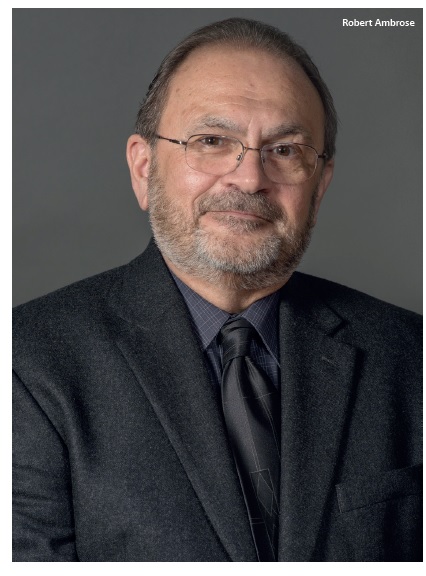A work in progress at both universities and in-house on property By: Robert Ambrose
My commentary this issue is about casino education both in academic institutions and on a casino property.
I have worked in both environments, as a casino operations executive and university instructor in the U.S. I will state that the topic of casino education is a work in progress in both academia as well as in most company in-house programs.
I am going beyond the “smiley buttons,” worn by employees and scripted generic comments given to employees for customer interactions.
Educating vs. Training for your Employees:
It is all about the content…
I have always preferred to use the term education instead of training; because in educating employees, they receive a learning experience for extended long term growth.
 Simply providing a training experience for an employee, will provide skill sets to accomplish short-term goals. Such as: skill sets to complete a particular task or to blindly memorize and recite a series of scripted customer service interactions, with little or no definition to support them. There is no path for long term development with this approach.
Simply providing a training experience for an employee, will provide skill sets to accomplish short-term goals. Such as: skill sets to complete a particular task or to blindly memorize and recite a series of scripted customer service interactions, with little or no definition to support them. There is no path for long term development with this approach.
On campus, where there is a mix of both career academics and current or former industry people engaged in the instructional applications as well as research in industry, it works! However, applying only one model
does not work. The academic instructors in the casino curriculum must be in collaboration with industry people, creating a more well-rounded and informed student, and future gaming industry, employee.
On property, the perfect “in-house” ideology should be a community of employees working in an environment where internal educational programs are the norm. They are company programs based on a curriculum that is specific to that brand. You will not find this at the university level unless a partnership develops between the local academic institution(s) and a casino company.
Why partner? This serves a few purposes. For the company it brings a structure of academic learning principals to the company human resource training/ educational model. Academia benefits because it takes the sometimes-sterile environment of an unrealistic or outdated curriculum into the casino/hospitality real-time environment. And it also doesn’t hurt some of the (non-industry) career academics that instruct the topic and may need an opportunity to broaden and refresh their skill sets.
Today in the casino industry there is a variety of other non-gaming hospitality property amenities that are a collective part of a company’s presentation. Collectively they come together as one brand for the customer, as the total property experience. Within the property experience, there should be teams of educated employees bringing the brand identity together, creating a single experience for those customers.
Where are property Executives in this educational mix?
The property leadership is composed of a group of professionals that collectively present a unique diverse combination of “best-practice” experiences. And they should be willing to share it in a collaborative way with academic professionals and employees; to produce an effective educational program.
Learning from “Best Practice” Concepts…
Executives are key team members and play an active role in providing leadership and guidance through the employee educational process. Team building requires a special mix of management talent. A commitment by property leaders to support on-going educational programs that encourage development and keep all employees at a consistent level of knowledge, must be part of the operational model. That includes that partnership with local educational institutions I mentioned earlier.
Building the Team through Education:
How does a company bring their brand philosophy to the learning environment?
It happens through “consistent” employee education programs with a curriculum defining the companies guest service model and employee empowerment initiatives.
The concept is twofold: Team building relies on a mix of educated talented leaders that coach and lead diverse, multi-generational and multi-cultural groups of employees reflecting the property brand.
First, the company needs to be willing to accept a learning model that may be different from what they have known.
Second, they need to seek ways to effectively apply it. This is where the academic community can help.
The academic model for hospitality and gaming education must be part of the company employee educational philosophy.
The future is now. What takes place in the educational environment will impact how successful employment placement will proceed. Studies have shown that employees will remain with their company longer when the company is more likely to offer empowering educational opportunities.
A great employee (that includes management) of casino/hospitality operations is always a student of the industry and the property that employs them. They should be continually learning and adapting to new casino games, events, upgraded technology and are aware of all marketing programs. And refresher moments in customer service, along with incentives, should be part of this program.
Competent, trained and educated employees must be at the core of any operation. The technological tools designed for the industry, combined with a consistent, company supported guest educational/ training program(s), provides for a positive guest service experience.
Bringing a customer to the door once is easy. It is employees, applying the right, consistent customer experience during that visit, that will make the guest decide to return.
The Customer is the final word as to whether the casino operation has delivered the experience.
The delivery process starts with the correct educational model.
Robert Ambrose, Consultant & Adjunct Casino Instructor
Fairleigh Dickinson University

















